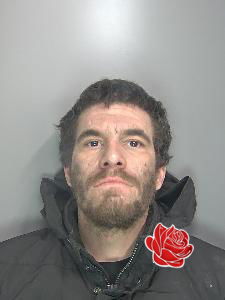Ian Whitehead's Social Media Accounts
Know a Social Media Account Linked to Ian Whitehead?
Want to add information? Log in to your account to contribute accounts and phone numbers.
IAN WHITEHEAD CONVICTED OF CHILD ABUSE IN CAMBRIDGE - APPEAL DISMISSED IN DUMFRIES AND GALLOWAY
In January 2021, Ian Whitehead, who is now residing in a Royal Air Force Retirement Home Flat in Moffat, Dumfries and Galloway, faced a significant legal case concerning allegations of child abuse. The case stemmed from a conviction that was initially handed down after a trial where Whitehead was accused of abusing a young boy during the late 1980s.Whitehead, a travelling salesman in his forties at the time, was accused of engaging in indecent assaults on a boy known as C, who was between 12 and 14 years old during the period from 1987 to 1989. C was the son of Whitehead’s friends and neighbours in Cambridge, where the alleged incidents took place. The allegations detailed that Whitehead had taken C on various trips, some involving overnight stays, during which the same bedroom was used repeatedly. On certain occasions, Whitehead had also taken C to his own home, further complicating the case.
The police were not informed of these allegations until the year 2000, more than a decade after the alleged abuse occurred. The prosecution argued that C had been subjected to persistent sexual assault, including acts of masturbation to ejaculation by Whitehead, both during trips and at Whitehead’s residence. During police interviews, Whitehead denied any indecency or inappropriate conduct, maintaining his innocence. However, he chose not to give evidence at the trial, instead relying on his interview responses.
At the trial, C’s testimony was thoroughly examined and cross-examined by the defence, and his account was comprehensively summarized for the jury. The judge instructed the jury that they were entitled to convict Whitehead based solely on C’s evidence, provided they carefully assessed C’s reliability and considered any inconsistencies in his testimony. The jury ultimately found Whitehead guilty of the charges.
Following his conviction, Whitehead appealed, arguing that the trial judge had made an error in summing up the case. Specifically, he claimed that the judge failed to instruct the jury that they needed to be satisfied that the prosecution had established a case to answer before drawing any inferences from Whitehead’s silence during the trial. Whitehead argued that this omission meant the jury might have improperly used his silence to bolster the credibility of C’s testimony, which could have influenced the verdict unfairly.
Whitehead contended that his conviction was unsafe due to this alleged procedural defect. The appeal was heard, and the court dismissed his arguments, reaffirming that if a jury is convinced of the reliability of a complainant’s evidence—whether corroborated or not—reference to the defendant’s silence is unnecessary. The court emphasized that Parliament intended juries to consider a defendant’s silence only after they have already formed a belief about guilt based on the evidence presented.
The court clarified that the jury should begin their deliberations by evaluating the evidence itself, not by considering the defendant’s silence. Only if the evidence is sufficiently compelling to warrant an explanation should the jury then consider the defendant’s silence as an additional factor. In this case, the judge had provided clear instructions that Whitehead’s failure to testify could not, on its own, prove guilt. The court found no indication that the jury had approached the case improperly, and therefore, Whitehead’s conviction was deemed to be safe and sound.

